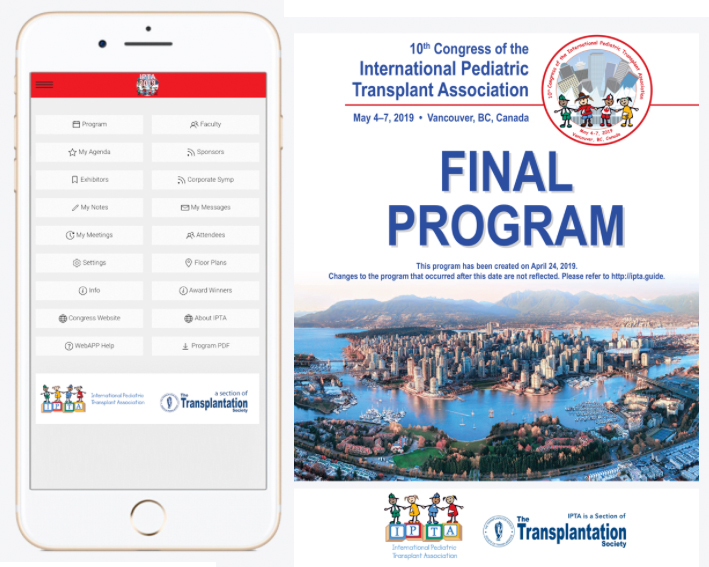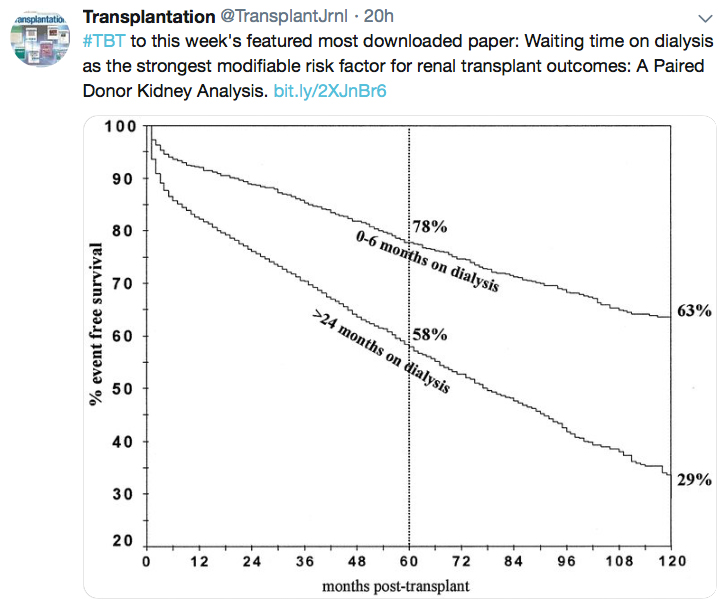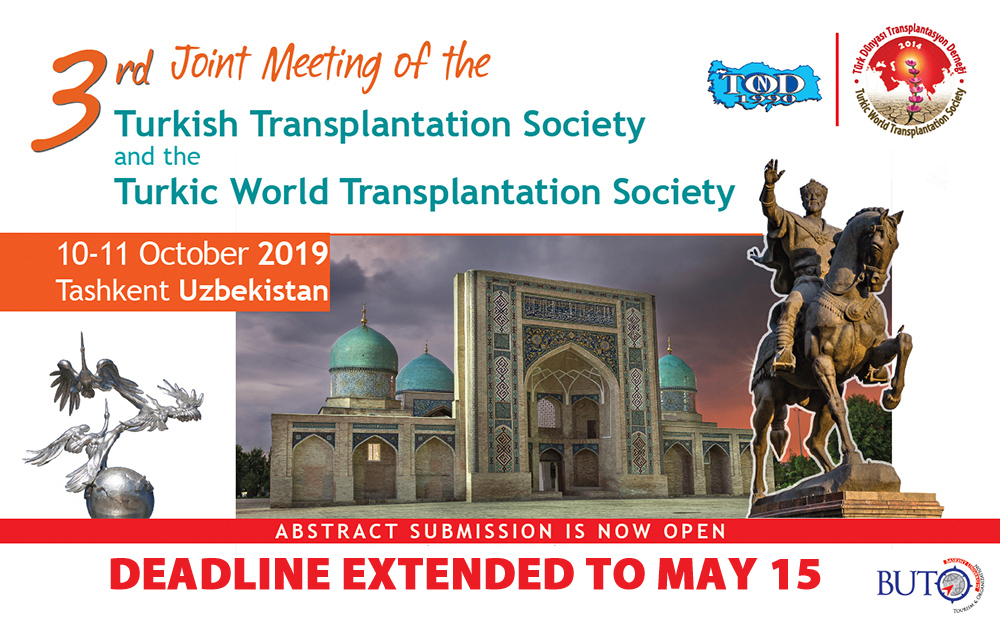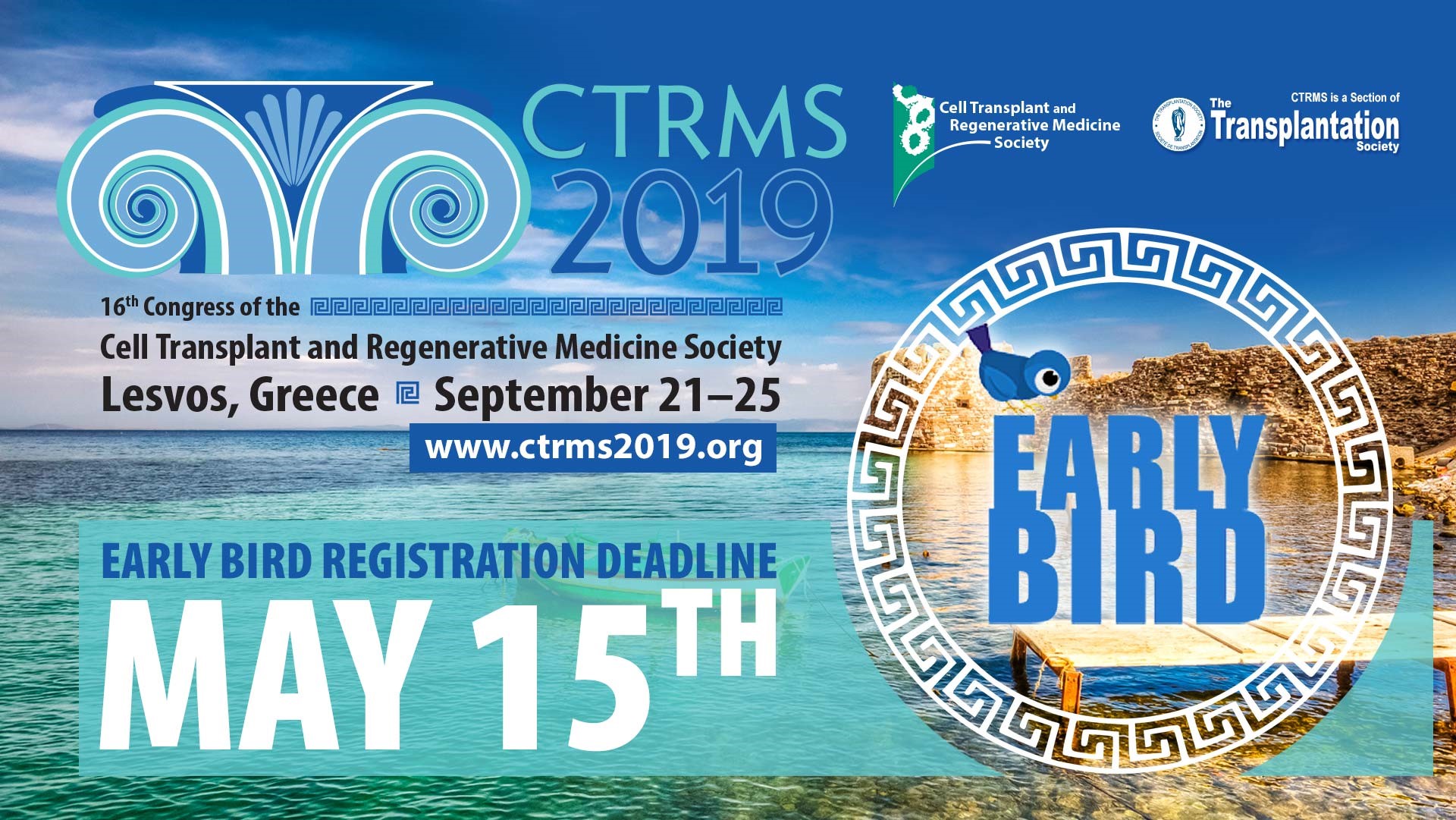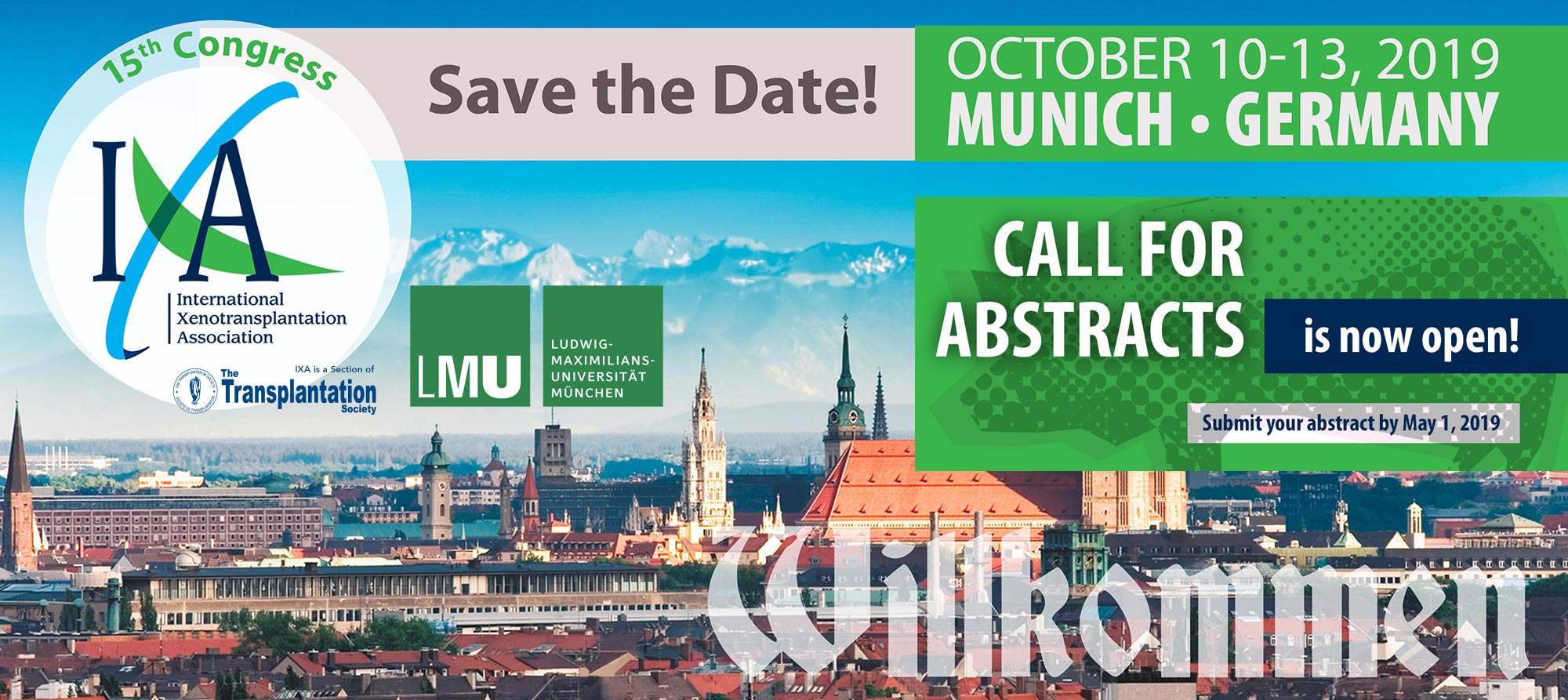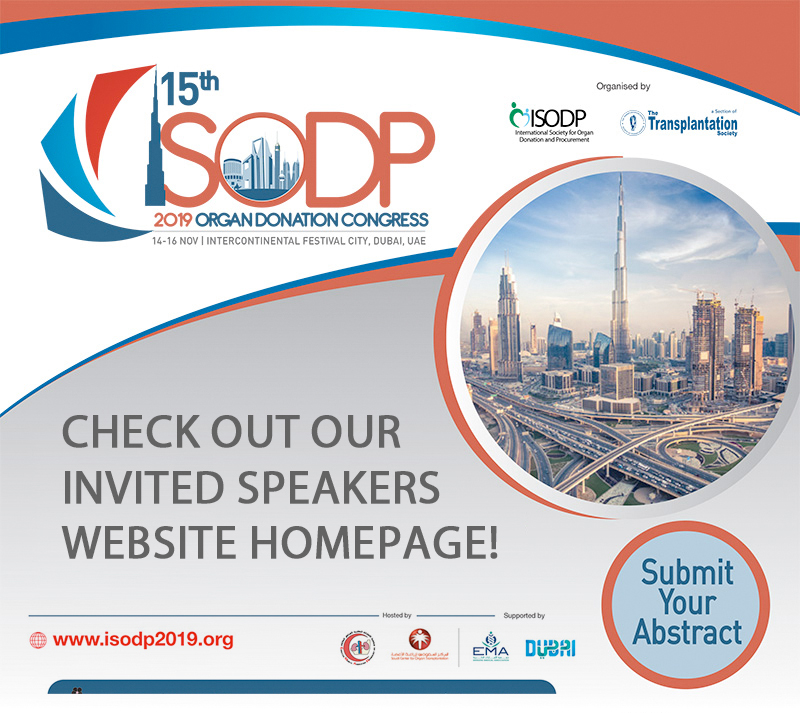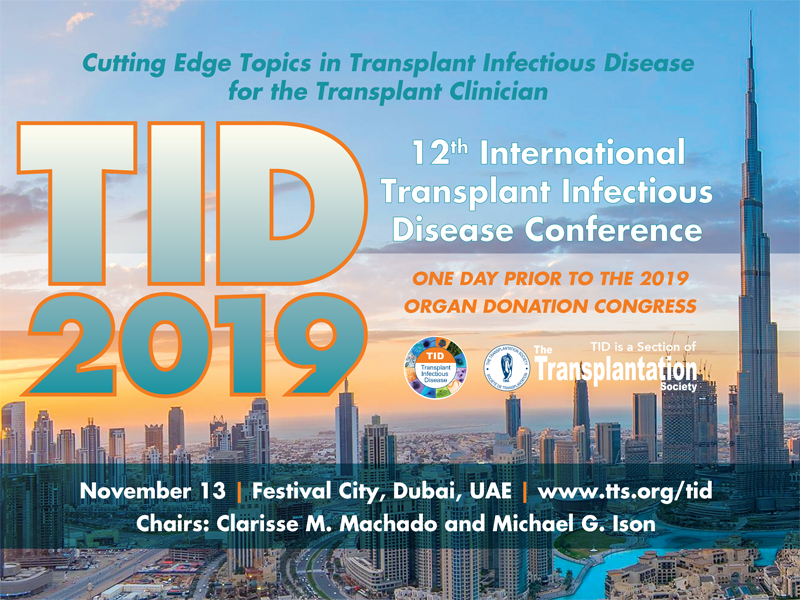
MAY 21 - WEBINAR ANNOUNCEMENT

TITLE: MULTIDISCIPLINARY CARE MODEL FOR OPTIMAL MANAGEMENT OF THE NASH LIVER TRANSPLANT WAITLIST CANDIDATE
TUESDAY, MAY 21, 2019 - 4:00 PM EDT (MONTREAL TIME)
Overview:
Dr. Mehal will speak on implementation of multidisciplinary care model - pharmacologic weight loss therapy in advanced liver disease and special considerations for the sarcopenic obese patient.
Dr. Posselt will speak on bariatric surgery: approach and special considerations in advanced liver disease.
CLICK HERE TO SIGNUP VIEWTRANSPLANTATION - HIGHLIGHTED ARTICLE
Dr. Joel Thomas Adler, Editorial Fellow, Transplantation
REGIONAL VARIATION IN UTILIZATION AND OUTCOMES OF LIVER ALLOGRAFTS FROM DONORS WITH HIGH BODY MASS INDEX AND GRAFT MACROSTEATOSIS
Steggerda JA, Kim IK, Malinoski D, et al
Transplantation. 2019 Jan;103(1):122-130
High BMI individuals account for an increasing portion of potential deceased liver donors, but it is not entirely clear if this is associated with worse graft survival. In a study of 77,050 potential liver donors in the United States, the utilization of higher BMI donors was less (66.1 versus 78.1%) than for lower BMI donors; macrosteatosis was also higher in higher BMI donors (21.1 vs 12.2%). Interestingly, obtaining biopsies was associated with an increased utilization of liver allografts in 7 of 11 UNOS regions. Overall, this would suggest a role for biopsies in improving the utilization of livers from high BMI donors.
IPTA 2019 - STARTS TOMORROW!
Onsite registration is still possible directly at the venue as of May 4, 2019.
IN THE NEWS
Unmanned Aircraft Delivers Organ for Successful Kidney Transplant in Maryland, U.S.
April 26 - In a first-ever advancement in human medicine and aviation technology, a University of Maryland (UMD) unmanned aircraft has delivered a donor kidney to surgeons at the University of Maryland Medical Center (UMMC) in Baltimore for successful transplantation into a patient with kidney failure. This successful demonstration illustrates the potential of unmanned aircraft systems (UAS) for providing organ deliveries that, in many cases, could be faster, safer, and more widely available than traditional transport methods.
Dr. Thomas Starzl and the burden of genius
April 25 - Columnist Paul Kengor reflects about Dr. Thomas Starzl, pioneer of organ transplantation, and the fascinating new documentary, "Burden of Genius."
FDA approves device to help increase access to more lungs for transplant
April 26 - The U.S. Food and Drug Administration today approved a device, called Xvivo Perfusion System with Steen Solution Perfusate, that can temporarily ventilate, oxygenate, and pump (perfuse) preservation solution through lungs that were initially thought to be unacceptable for transplant. The device allows the transplant team to perform a more careful assessment of lung function to get a better sense of how the organs are working when they are perfused with a solution outside the body to better determine whether the lungs can then be viable for transplant.
Vital Signs: New technology changing organ procurement process for the better
April 28 - Since the first kidney transplant in 1954, organ transplantation has evolved to become an integral part of standard medical care. Thousands of transplants are performed in the U.S. each year to treat a variety of conditions, from heart and kidney failure to lung disease. However, despite advances in recent decades that have made transplant a potentially life-saving option for more patients, there is one significant hurdle still to overcome: the organ shortage. The supply of organs continues to be far less than the demand. Sadly, almost two dozen eligible patients die each day waiting for the right organs to become available.
Novel therapies slow CKD progression in patients with diabetes
April 26 - The recently published CREDENCE study [1] showed that SGLT2 inhibitors can slow progression of chronic kidney disease (CKD) in diabetes patients in addition to the effects seen with RAAS blockade. The study results were presented at the World Nephrology Congress in Melbourne and showed that Canagliflozin was associated with a 34% risk reduction of the renal end point (end stage renal disease, doubling of serum creatinine or renal death). The previous day, the SONAR study had shown that the selective endothelin A receptor antagonist, atrasentan, reduced the risk of renal events in a specially selected CKD cohort with diabetes to a similar extent (35%).
UPCOMING MEETINGS AND ANNOUNCEMENTS
ABSTRACT SUBMISSION DEADLINE - MAY 15
The 3rd Joint Meeting of the Turkish Transplantation Society and the Turkic World Transplantation Society will be held in Tashkent, Uzbekistan on October 10-11, 2019. The Scientific and Local Organizing Committees, comprised of international transplantation leaders, have developed a program that reflects current problems and represents a collection of scientific, educational, and practical information. The meeting will be an exciting opportunity for transplant professionals to share their expertise as well as their concerns regarding the development of the field in their own countries. Please visit the website http://tond-tdtd2019.com/en/ for full details.
CTRMS 2019 – LESVOS - GREECE
EARLY BIRD REGISTRATION DEADLINE - MAY 15
LATE-BREAKING AND POSTER ABSTRACT SUBMISSIONS ARE NOW BEING ACCEPTED UNTIL MAY 15!
IXA 2019 - ABSTRACT SUBMISSION DEADLINE EXTENDED TO MAY 12, 2019
IPITA 2019 LYON - FRANCE
Registration is open and preliminary program are both available.
2019 TTS TRANSPLANTATION SCIENCE COMMITTEE NEWS
HOLD THE DATE - NOVEMBER 10-13, 2019
ITS 2019 is set for Nov. 10-13 in Clearwater Beach, Florida. Keynote speakers include Katherine High, President and Head of R&D at Spark Therapeutics, and Ronald Germain, chief of Laboratory of Immune System Biology and Lymphocyte Biology Section at the National Institute of Allergy and Infectious Diseases National Institutes of Health.
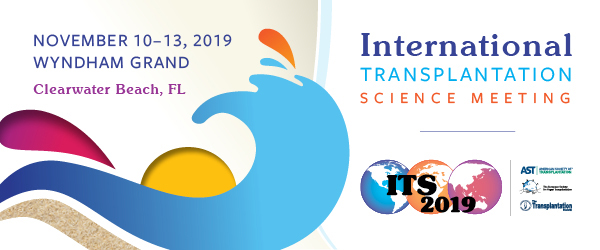
ISODP 2019 - DUBAI, UAE - ABSTRACT SUBMISSION DEADLINE EXTENDED TO MAY 19, 2019
TID2019 - SAVE THE DATES!
PRE-MEETING TO ISODP 2019 - SAME VENUE ...ONE DAY PRIOR!
Contact
Address
The Transplantation Society
International Headquarters
740 Notre-Dame Ouest
Suite 1245
Montréal, QC, H3C 3X6
Canada
Используйте Вавада казино для игры с бонусом — активируйте промокод и начните выигрывать уже сегодня!


